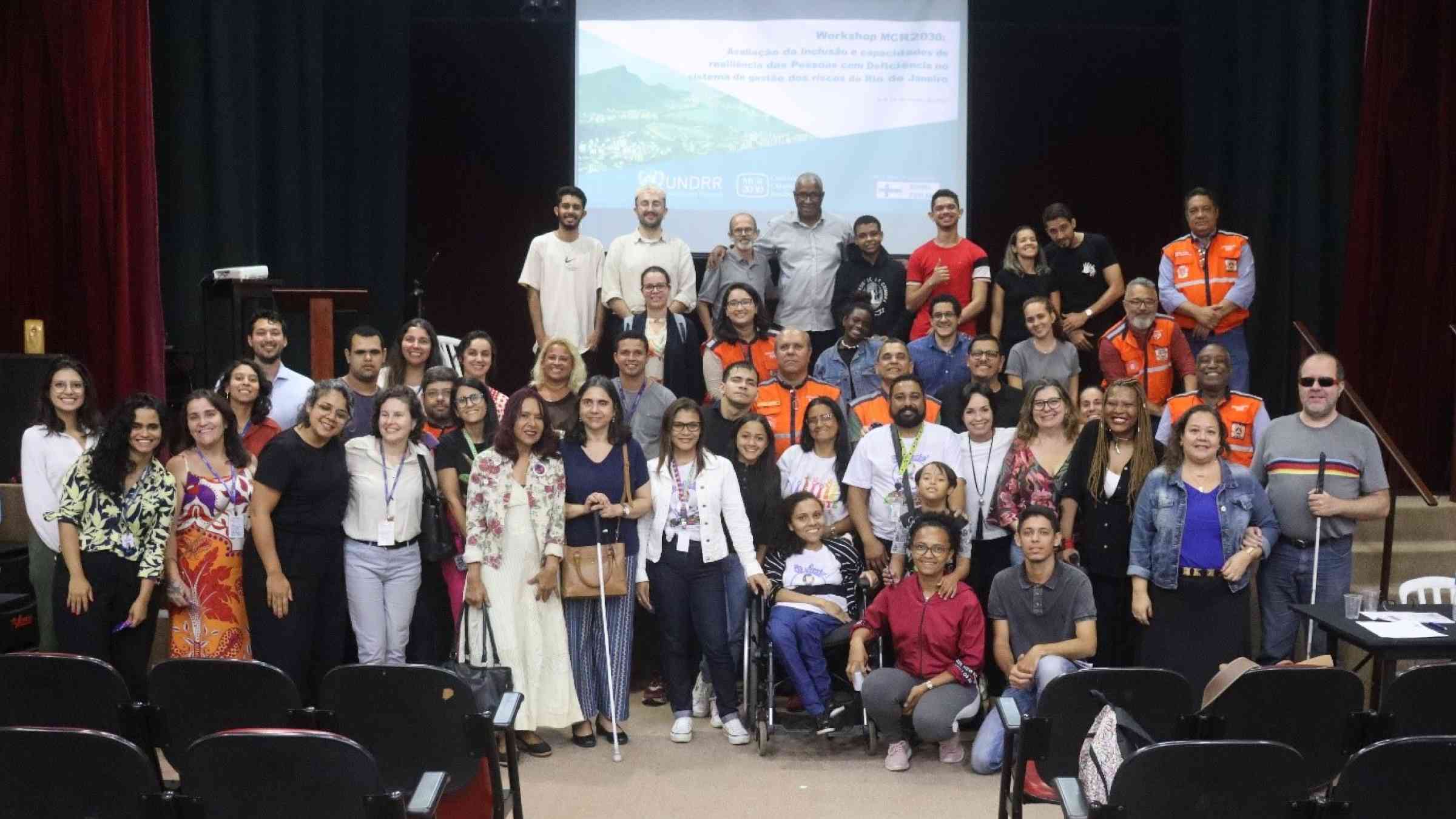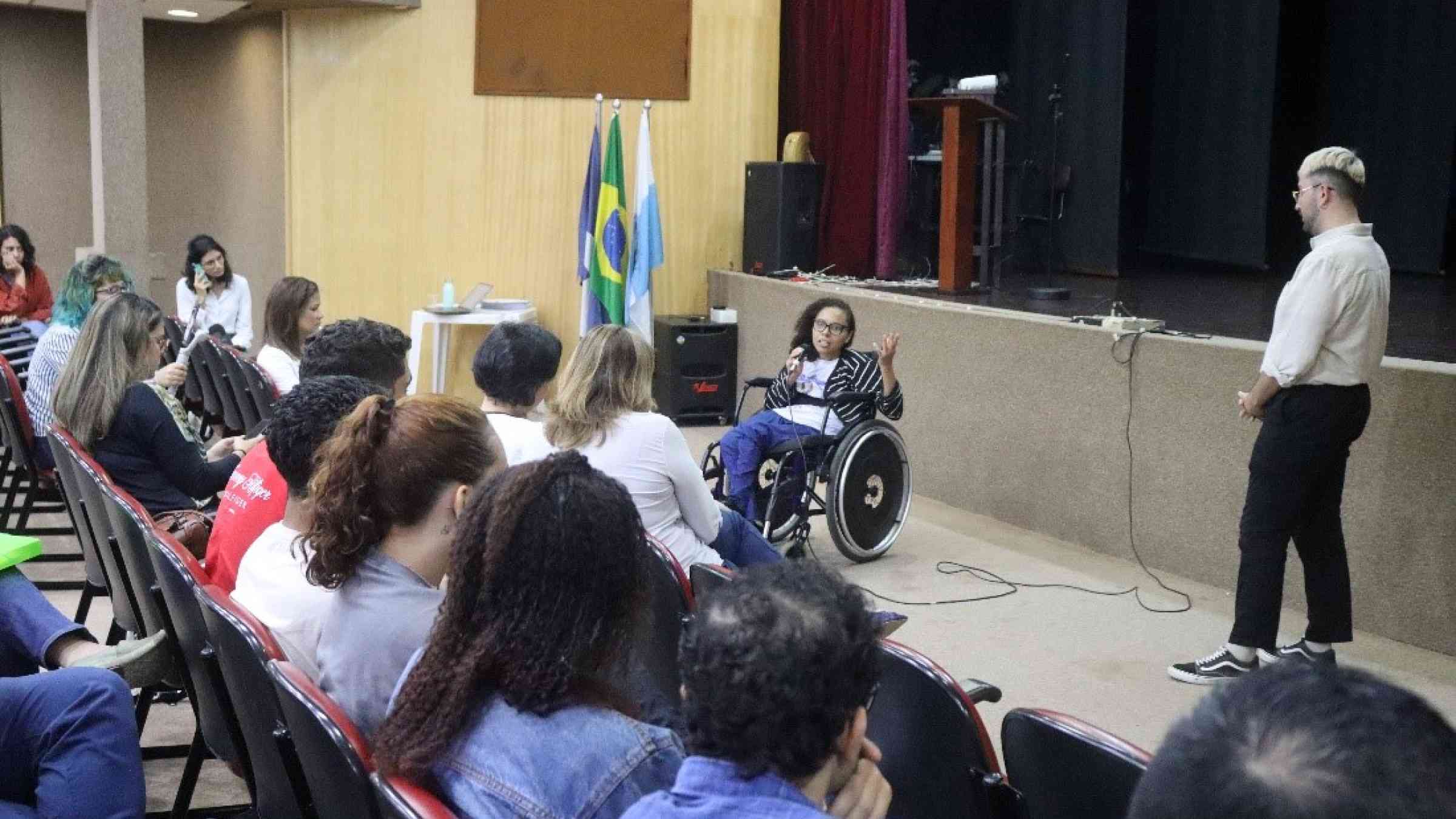Rio de Janeiro strengthens the Inclusion of Persons with Disabilities in Disaster Risk Reduction during UNDRR-MCR2030 workshop

More than 50 members of the city government, organisations of people with disabilities, and residents of communities in at-risk areas - such as Morros dos Macacos, Maré and Rocinha - together with students from the Benjamin Constant Institute, met on 9 October to assess the capacities of Rio de Janeiro's risk management system for the inclusion and empowerment of people with disabilities.
The workshop was held as part of the celebration of the International Day for Disaster Risk Reduction (13 October), whose 2023 edition aimed to promote the fight against inequality through disaster resilience. UNDRR promotes disaster resilience as a fundamental human right for everyone, ensuring that no-one is left behind.
"Accessibility in my community is non-existent. I know that when disaster strikes, and it will, I'll be left behind because we don't have the infrastructure, the equipment or the awareness. I want this to change and we're all going to contribute." - Jussara, a Rocinha resident and wheelchair user.
"We can be very resilient. I live in an area vulnerable to natural phenomena and, frankly, I'm not sure my house could withstand them. I didn't choose to live here, but I know it's crucial to have early warning systems in our community." - Marcelly, a Maré resident with visual impairement.

The participants analysed Rio de Janeiro's current situation using the 19 indicators in the Addendum to the Scorecard for the Inclusion of People with Disabilities, a tool developed by UNDRR. This methodology facilitated the structuring of discussions between public managers and the community leaders present, allowing the voices of people with disabilities in Rio de Janeiro to be heard and taken into account in the development of inclusive and accessible disaster resilience actions.
The results obtained were used as input on the second day of the workshop, on 10 October, to identify concrete actions to strengthen disaster resilience for people with disabilities in Rio de Janeiro, in the short, medium and long term. The City Council therefore aims to update Rio de Janeiro's plans for resilience, risk prevention and contingency.
"People with disabilities are present everywhere: in the education system, in transport, in urban development... It's crucial to recognise that it's not just a question of implementing a single social assistance policy, but of acting holistically. We must ensure that people with disabilities actively participate in decision-making, effectively and significantly transforming their reality." - Helena Werneck, Municipal Secretary for People with Disabilities in Rio de Janeiro.
"We will only build a resilient and inclusive city by integrating the actions of public authorities. COR has a fundamental role to play in achieving this articulation of all agencies." - Marcus Belchior, Chief Executive of the Rio de Janeiro Operations Centre.
The workshop was held by the United Nations Office for Disaster Risk Reduction (UNDRR), Regional Office for the Americas and the Caribbean, as part of the Making Cities Resilient 2030 (MCR2030) initiative, in collaboration with Rio´s Centre of Operations (COR), the Municipal Subsecretariat for Protection and Civil Defence and the Secretariat for People with Disabilities, with financial support from the Finnish government. The workshop was facilitated by Cristobal L. Maciel and Clément Da Cruz, UNDRR Programme Officers for Local Resilience in the Americas and the Caribbean. The opening and capacity-building module of the workshop were recorded as part of UN-Habitat´s 2023 edition of the “Circuito Urbano” programme (video below).

